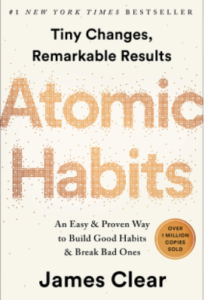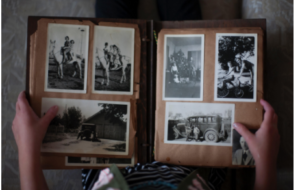In his book Atomic Habits*, James Clear transforms the science of habits into a practical framework he calls the Four Laws of Behavior Change. To create a good habit, you must (1) Make it Obvious, (2) Make it Attractive, (3) Make it Easy, and (4) Make it Satisfying. We have applied this framework to your Financial Matters and Physical Well-being. Here’s how you can apply it to your Intellectual Capital.
Intellectual Engagement looks different throughout our lives. In young adulthood, school provides a platform to facilitate ongoing learning. Early career opportunities present challenges as we continue to discover what makes us tick. As we become parents, our children’s homework is a refreshing opportunity to learn outside of our jobs.
Later in life, however, intellectual engagement may not be naturally built into our day-to-day. As such, we must be intentional about what we do to continue learning, and building the right habits can help.
Research suggests that engaging in mentally stimulating activities throughout life may provide benefits for brain health and reduce the risk of cognitive decline later in life. While more research is needed to fully understand the link between our activities and specific brain health outcomes, we know that it is beneficial to remain mentally active and continue learning over the course of our lifespan.
Here are a few ideas to get you started:
Learn a New Skill or Advance Your Knowledge. Study photography, learn how to crochet or knit, or play a musical instrument. Online learning is more abundant than ever. Universities are providing online classes to the general public, and there are companies devoted solely to online learning for non-students.
-
Subscribe to MasterClass, a membership-based online learning platform with classes from experts including writing classes by Malcolm Gladwell, tennis lessons by Serena Williams, and cooking classes by Gordon Ramsay.
-
Explore course offerings from a local college or university. UCLA offers a Certificate in Photography, UCCE Master Gardners offers free Gardening workshops, and the Osher Lifelong Learning Institute at the University of Nevada, Reno offers classes that range from how to play the ukulele to language and history classes. Alternatively, universities around the country are offering virtual courses for non-students, such as Tufts University’s free Nutrition Micro-Courses.
-
Join Annie’s Kit Clubs, an online resource for crafts, such as knitting, crocheting, quilting, and sewing. Their Block-Of-The-Month Club includes monthly kits that culminate in a beautiful afghan, and the Caring Crochet Club includes monthly kits with everything you need to make items like chemo caps for cancer patients or blankets for ill children. They even facilitate the donation process so you can learn while making a difference in people’s lives.
Investigate Your Genealogy. Learning about your family history can be fascinating. In addition to learning about your history, you can explore ways to preserve and share your findings with the next generation.
- Start with the American Ancestors Getting Started Guide. It may not be obvious where to begin, so use this step-by-step guide to help get you started.
- Explore online sources, such as Ancestry.com, FamilySearch.org, and Fold3.com.
Mentor Others. Putting your years of experience and expertise to work in a mentorship setting can be both intellectually stimulating and rewarding.
- Inquire with your local entrepreneurship networking group or community center.
- Browse mentoring opportunities on Mentoring.org.
- Reach out to your alma mater to learn if they offer an Alumni Mentorship Program.
How to Transform your Intentions into Habits:
Start with a Habits Scorecard and write down your current habits. You may discover you are doing something habitually that no longer serves you, or that you are already starting to achieve your goals. Then, use habit stacking to integrate your activity into your day. If you drink coffee every morning and are trying to learn French, try stacking your language practice with your morning coffee habit. Voilà, café!
Pair something you want to do with something you have to do. If you have to take your dog for a walk and have been meaning to listen in to the latest class recording, listen in with headphones while you are on your walk.
Reduce friction by decreasing the number of steps between you and your good habits. If you are taking a class online, save your log-in credentials to a password manager so you can easily log in and continue your course.
Track the milestones that will help you achieve your goal and use positive reinforcement along the way. For example, if you aim to become a pianist, celebrate the small achievements as you learn to read music and as you play your first song. You may notice that you are achieving small milestones weekly – keep this streak going until you achieve your goal!
Global Council on Brain Health (2017). “Engage Your Brain: GCBH Recommendations on Cognitively Stimulating Activities.” Available at: www.GlobalCouncilOnBrainHealth.org
Photo Sources: www.freepik.com and www.unsplash.com




